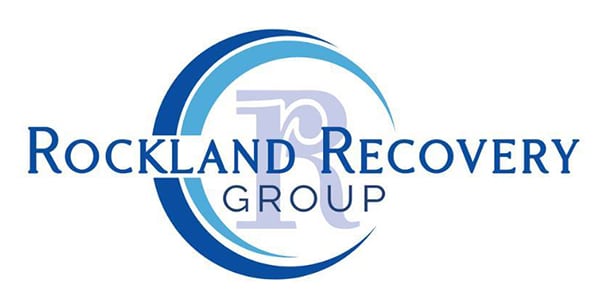Addiction is a disease that affects both the body and mind. On a physical level, the body overcomes addiction by detoxifying and adapting to not having the drug in its system.
The physical aspects of overcoming addiction are challenging, but the best long-term outcomes also require treatment to help you overcome the mental side of addiction. This is why the role of therapy in drug addiction treatment is so important.
What Are the Benefits of Therapy for Addiction Recovery
An addiction treatment program that includes individual therapy can help you break free from the cycle of addiction. Through therapy, it becomes possible to better understand why and how addiction occurs on an individual level, and develop the necessary skills to maintain a life without drugs or alcohol for the long term.
Each person benefits differently from a personalized approach to therapy in addiction treatment, but there are a number of benefits that apply to everyone across the board.
Identifying Individual Addiction Triggers
With addiction disorders, there are certain triggers that create a situation or feeling that can make a person more likely to use drugs or alcohol. These triggers are different for each person but can include being around certain people, being in certain social situations, or dealing with certain types of emotions.
Therapy can help you identify the triggers that lead to temptation and can potentially jeopardize your recovery success.
Identifying Negative Thought Patterns and Learning How to Change Them
Negative thought patterns play a significant role in the development of addiction and the risk of relapse in recovery. There is usually a pattern of negative thinking that occurs leading up to substance use, and learning how to identify and cope with them is important for recovery.
In the case of relapse, there are three stages, with the physical use of drugs or alcohol being the last. Negative thought patterns are often what fuels the emotional stage of relapse. Learning how to change these thought patterns through therapy can significantly reduce the risk of relapse.
Coping Skills and Resiliency
Addiction is a chronic, lifelong disease. Even after successful treatment and years of relapse, it’s the development of coping skills and resilience that keeps a person on their path to recovery. Therapy in addiction treatment helps the individual develop coping skills and resiliency for life.
Addressing Co-Occurring Mental Health Disorders
Mental health conditions are frequently present in addiction disorders. Sometimes, these mental health conditions are known but undertreated, and other times, they are misdiagnosed or undiagnosed completely.
ADHD, bipolar disorder, manic depression, PTSD, anxiety, and OCD are a few of the most common mental health conditions that exist with addiction.
Time spent with a licensed mental health therapist can help to identify co-occurring mental health disorders, leading to significantly improved outcomes with all other treatments and therapies used in addiction recovery. Seek out an addiction treatment center that offers specialized mental health care through a dual diagnosis program.
If you’re struggling with mental health, we urge you to contact Rockland Recovery at 888-299-4833. The Substance Abuse and Mental Health Services Administration (SAMHSA) also offers a valuable resource for both addiction and mental health. Their 24-hour National Helpline can be reached at 1-800-662-HELP (4357).
Personalized Treatment in a Safe Environment
Going through addiction treatment can be a very vulnerable experience. There are times when exposing your innermost thoughts and past traumas in group therapy or to a medical professional might feel unsafe. Individual therapy offers a safe place to express yourself and work through trauma and mental health issues in a way that is designed specifically for you.
Types of Therapy for Addiction
There are several effective types of therapy used in addiction treatment, each tailored to address different aspects of the individual’s needs. Each approach offers unique benefits, from identifying and changing negative thought patterns to providing peer support and rebuilding family relationships.
Cognitive Behavioral Therapy for Drug Addiction
CBT is one of the most widely used therapies for addiction recovery. CBT helps the individual in recognizing the thoughts, feelings, and behaviors that lead to addiction. Identifying triggers, developing positive thought patterns, and learning coping skills to achieve long-term freedom from addiction are key components of CBT.
Dialectical Behavior Therapy
With DBT, there is a strong focus on becoming aware of thoughts and actions that lead to substance use and using mindfulness strategies to manage the emotional and physical triggers of substance use.
Eye Movement Desensitization and Reprocessing (EMDR)
EMDR, with a successful history of being used to treat PTSD, is also showing promise for the treatment of addiction. With EMDR therapy, the individual follows guided eye movements while working through trauma and other factors that contribute to addiction.
EDMR can encourage long-term recovery by helping the individual develop the level of emotional regulation needed to avoid relapse.
Family Therapy
The role of family members and loved ones is significant in addiction recovery, but these relationships are often complex and damaged by the strain of addiction. Family therapy programs help both the individual going through addiction treatment and those who are closest to them.
Healing begins to take place, trust is rebuilt, and family members are able to learn more about the disease of addiction, and how to support their loved one in the most beneficial ways.
Group Therapy
Peer support and community are important for long-term recovery, and one of the most effective ways to build these assets is through group therapy. Group therapy can also help reduce the feelings of isolation that are frequently experienced during recovery, as well as help individuals break free from the stigma of addiction.
Learn More About Therapy Options for Addiction Recovery
The role of counseling in addiction treatment is an important one. At Rockland Recovery, we value you as an individual and will work with you to develop an addiction treatment plan that is tailored to your needs – including various types of therapy. Contact Rockland Recovery today at 888-299-4833 to speak directly with one of our care coordinators.




